Ullapool's controversial Cold War football game recalled
- Published
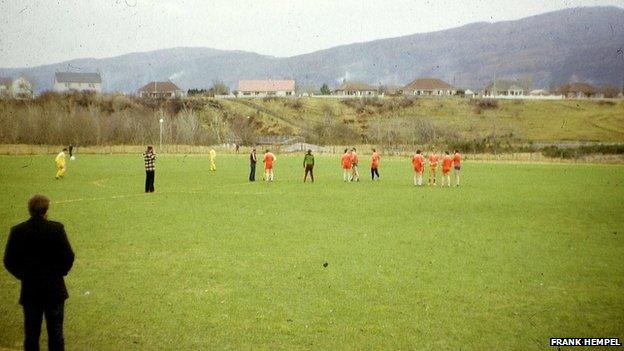
The game was played at a time of heightened tensions between the East and West
Photographs of a controversial football match played in the Highlands during the Cold War have been put on public display for the first time.
Men in Ullapool took on fishermen from the USSR in the kick-about in 1984.
The fishermen had to borrow boots for the game, which caused a storm in western media because of the heightened tensions between the East and West.
The pictures taken by Frank Hempel, then a resident of East Germany, are on display at Ullapool Muesum.
The images form part of a new exhibition recalling visits to Ullapool by "klondykers", factory ships that would anchor in Loch Broom to process mackerel.
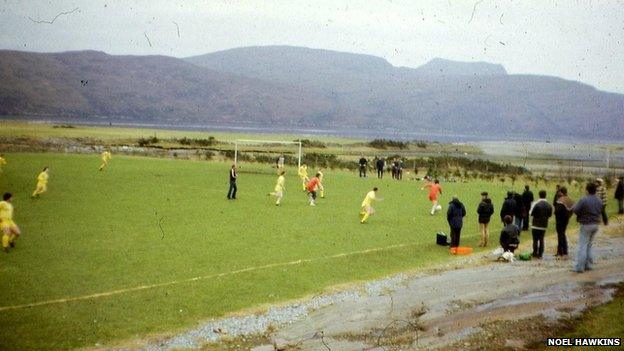
Locals lent the klondykers boots to play the game
Dozens of klondykers from all over the world, including the former USSR, arrived in the loch between the 1970s and early 90s.
Dubbed Scotland versus the Soviet Union, the game in 1984 saw the Eastern Bloc crewmen borrow boots from local people so they could play.
It was condemned by the media in the UK, USA and Australia. Ullapool Museum said the match was seen as a threat to western society.
Cold War events during 1984 included a collision between a US aircraft carrier and a Soviet nuclear submarine, and the USSR's boycott of the Olympics in Los Angeles.
Noel Hawkins, one of the residents of Ullapool involved in setting up the exhibition, said it was the first and last time such a football game was played in the village because of the attention it gained.
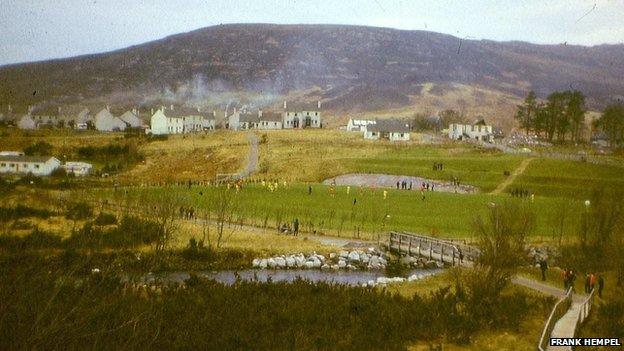
The kick about in Ullapool caused a stir in the media
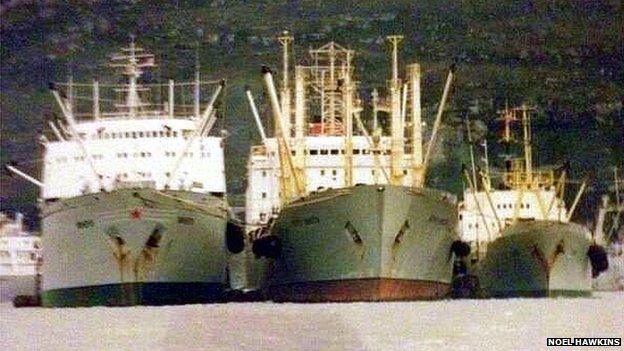
Klondyke factory ships in Loch Broom
The idea for the exhibition followed a recent visit to the Highlands by Mr Hempel from Naumburg in Germany.
During a trip on the tourist boat Summer Queen, Mr Hempel mentioned to Mr Hawkins, a crewman on the vessel, that he had been a teenager from Soviet East Germany on one of the klondykers.
Mr Hawkins had worked as a ferryman in Ullapool delivering stores to the factory ships.
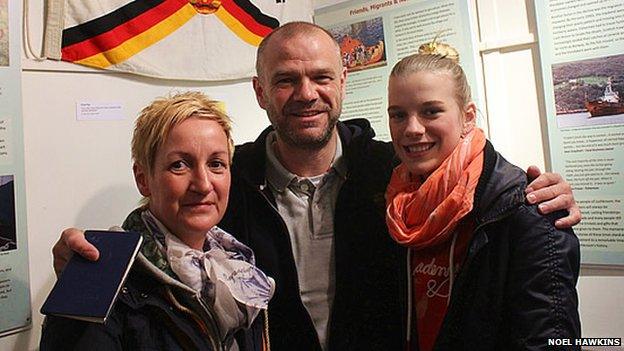
Former klondyker Frank Hempel and his family in Ullapool Musuem
Mr Hempel now visits Scotland every year with his wife Beate and daughter Lena.
Ullapool Museum curator Helen Avenell has recorded the former klondyker talking about his earlier visits to the west Highland port.
She said: "As word spread that we were planning an exhibition about the klondykers, many people in the village that had worked with the ships and businesses supplying stores, personnel and ferrying came forward to share their recollections as well as pictures and memorabilia."
The memorabilia includes a sealed bottle of Russian vodka that was brought ashore in the 1980s.